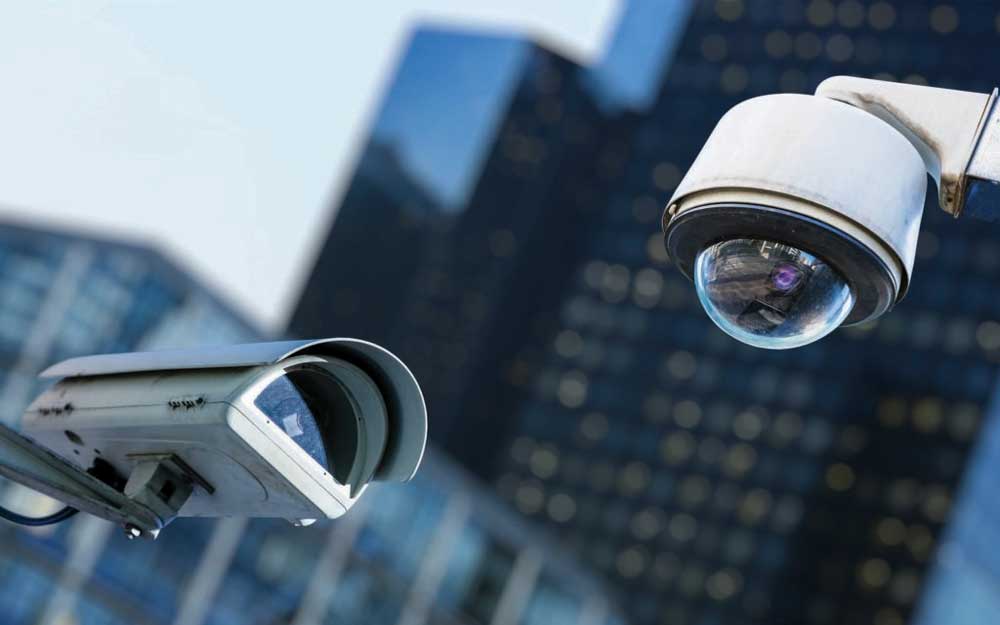Benefits of remote video monitoring for businesses
Are you considering a new video surveillance system for your business? Today, most surveillance systems come with one of two types of video cameras: IP or CCTV. Both cameras capture and transmit video footage, but they do so in different ways. IP cameras communicate across a network using internet protocol (hence the name IP camera), whereas CCTV cameras require coaxial cable connections. Since IP cameras allow you to monitor your business onsite and remotely easily, they are recommended security upgrades. This article explains everything you need to know about IP Security Camera Hosting.
What Is an IP Security Camera?
An IP camera is often called a network camera. It’s a digital camera that transmits images and video over a network. This network can be a wireless or local network, or it can transmit data across the Internet. Because these cameras can send and receive information easily across a network, business owners can monitor activity onsite, from home, or anywhere else. This always-on connectivity makes IP camera hosting popular in video surveillance systems.
Do IP Surveillance Cameras Need an IP Address?
IP surveillance cameras need an IP address to function properly. An IP (Internet Protocol) address allows the camera to connect to a network and communicate with other devices. Here’s why an IP address is essential for IP surveillance cameras:
-
Network Identification: The IP address uniquely identifies the camera on the network, enabling it to send and receive data.
-
Remote Access: With an IP address, users can access the camera remotely from any location with internet connectivity.
-
Data Transmission: The IP address facilitates video data transmission to recording devices, monitoring systems, or cloud storage.
-
Configuration and Management: Network administrators use the IP address to configure, manage, and troubleshoot the camera.
-
Integration: IP cameras can be integrated with other networked devices, such as sensors and alarms, to create a comprehensive security system.
Without an IP address, the camera cannot connect to the network, limiting its functionality and accessibility.
How Does an IP Camera Work?
Unlike CCTV cameras, which need coaxial cables, IP cameras can be easily accessed through a network connection. Their transmission capability is built right into the camera unit. Simply configure the camera to the Wi-Fi network or LAN (local area network), and it is ready to transmit the video footage. However, to observe the data remotely, you’ll need your camera’s dedicated IP host address. This configuration is simple to set up and allows you to monitor your business anywhere.
How To Store Your IP Camera Footage
The next question after “What is an IP security camera?” is what happens to the video feed after its transmission? You should hold on to it for a while to review it. To do so, you’ll want a secure place to store it – and you have a few options. You can store it directly on the camera, stream it to the cloud, or send the feed to another storage device (All of the above are also available). Customers of Pro-Vigil receive centralized storage of data from their surveillance cameras as part of the package. So if you choose Pro-Vigil for your IP camera hosting service, your video footage will automatically be backed up and accessible for the next two weeks (14 days is the standard, but additional days are available locally or in the cloud).
Why are IP Cameras More Beneficial than Analog Video Surveillance?
IP cameras offer several benefits over analog video surveillance systems, making them a preferred choice for many security applications:
-
Higher Resolution: IP cameras provide superior image quality with higher resolutions, enabling clearer and more detailed footage.
-
Scalability: IP camera systems are easier to scale, allowing for the addition of new cameras without significant infrastructure changes.
-
Remote Access: Users can access IP cameras remotely via the internet, enabling real-time monitoring and management from anywhere.
-
Advanced Features: IP cameras have advanced features such as motion detection, night vision, pan/tilt/zoom, and video analytics, which enhance surveillance capabilities.
-
Integration: IP cameras integrate seamlessly with other networked devices and systems, such as alarms, access control, and home automation systems.
-
Cost-Effectiveness: Over time, IP cameras can be more cost-effective due to lower installation costs (fewer cables required), easier maintenance, and the use of existing network infrastructure.
-
Digital Storage: IP cameras store footage digitally on network video recorders (NVRs) or cloud storage, offering easier access, search, and retrieval of video data.
-
Futureproofing: IP camera systems are more adaptable to new technologies and upgrades, ensuring long-term viability and compatibility with future innovations.
These advantages make IP cameras a more versatile and robust option for your modern video surveillance needs.
Signs You Might Need IP Video Surveillance
Now that we’ve defined IP cameras, it’s time to figure out if an IP security camera is right for your business. Here are some signs that you might need IP video surveillance:
-
You’re struggling with increased security concerns: Rising crime rates or security incidents in your area or within your property highlight the need for enhanced surveillance. Experiencing theft, vandalism, or other security breaches indicates a need for better surveillance.
-
You have high-value assets to protect: Protecting valuable personal or business-related assets necessitates robust monitoring systems.
-
You want to monitor a property remotely: If you need to monitor your property or business remotely, IP cameras provide real-time access via the internet.
-
Large or complex areas create security challenges: For monitoring large or complex properties, IP cameras offer better coverage and scalability compared to analog systems.
-
Regulatory compliance requirements: Certain industries require video surveillance to comply with legal or regulatory standards.
-
You need advanced camera features: The need for features like high-resolution video, motion detection, night vision, and video analytics indicates a move towards IP surveillance.
-
The business is growing: As your property or business grows, scalable surveillance solutions like IP cameras are essential to accommodate expansion without major infrastructure changes.
-
Insurance requirements: Some insurance policies may require or offer discounts for properties with video surveillance systems.
These signs can help determine if transitioning to or upgrading your existing surveillance to IP video surveillance is necessary.
What You’ll Need to Get Started with IP Camera Hosting
To connect a video surveillance system with IP camera hosting to your network, you’ll need the following:
-
IP hosting service
-
Dedicated IP address
-
Wireless router
-
Computer
-
A place to store your footage
Pro-Vigil provides the IP hosting service and storage for its customers allowing you to access your camera feed from anywhere without having to set it up yourself.
Why Choose IP Camera Hosting
IP camera surveillance is easy to install and manage, and it helps you monitor and protect your business 24 hours a day from internal or external theft and damage. Plus, you can access your surveillance system from anywhere to check on employees at work, observe your site after hours, or respond to threats. You can view the activity from your computer, smartphone, or tablet in real-time, or review securely stored video feeds from earlier.
The Pro-Vigil Advantage
Pro-Vigil offers high-quality surveillance systems with features like IP camera hosting and virtual security guards (so that there are eyes on your business even while you are sleeping). With state-of-the-art cameras, 24/7 surveillance, and deterrents to ward off potential threats, Pro-Vigil security systems stop most crimes before they even happen. Get peace of mind for your business. Contact Pro-Vigil to learn more about business security system options for your property today.
Q&A
The IP Cam 110 is a network-based security camera designed for remote surveillance. It captures high-resolution video and transmits it over an IP network, allowing real-time monitoring from anywhere with internet access. The camera features advanced functionalities such as motion detection, night vision, and remote pan/tilt/zoom capabilities. It integrates seamlessly with security systems; you can manage it via a web interface or dedicated apps. Ideal for both residential and commercial use, the IP Cam 110 offers enhanced security by providing clear, reliable footage and easy accessibility, ensuring users can monitor their properties efficiently and effectively.
IP cameras can be more expensive than traditional analog cameras, but the price difference varies based on features, brand, and quality. Key factors that influence the cost of IP cameras include:
- Resolution: Higher resolution cameras cost more.
- Features: Advanced features like motion detection, night vision, pan/tilt/zoom, and smart analytics add to the price.
- Connectivity: Wireless IP cameras might be more expensive than wired ones due to built-in Wi-Fi modules.
- Storage: Cameras with local storage (SD cards) or integrated cloud storage options might cost more.
- Brand: Established brands often charge more due to their reputation for quality and reliability.
Despite the higher initial investment, IP cameras offer better image quality, remote access, and easier integration with modern security systems, often making them worthwhile investments in enhanced security.
An IP CCTV (Closed-Circuit Television) security camera is a digital video camera that transmits and receives data over a network or the internet. Unlike traditional analog CCTV cameras, IP cameras provide enhanced features and capabilities. Here's a detailed look at what an IP CCTV security camera is:
- Digital Transmission: IP cameras convert video footage into digital signals and transmit this data over an IP network, allowing for high-quality video.
- Network Connectivity: They connect to the internet or a local network (LAN), enabling remote access and control from computers, smartphones, or other devices.
- High Resolution: IP cameras typically offer higher resolution than analog cameras, providing clearer and more detailed images.
- Power over Ethernet (PoE): Many IP cameras support PoE, which allows them to receive power and data through a single Ethernet cable, greatly simplifying installation.
- Advanced Features: IP CCTV cameras often include features such as:
* Motion Detection: Alerts and records when movement is detected.d
* Night Vision: Infrared or low-light capabilities for surveillance in dark conditions.
* Audio: Some models support two-way audio, enabling communication through the camera.
* PTZ (Pan/Tilt/Zoom): Remote control over the camera's view for broader coverage. - Storage Options: They support various storage methods, including on-device SD cards, network-attached storage (NAS), and cloud storage, providing flexible options for video archiving.
- Scalability: IP CCTV systems are easily scalable, allowing additional cameras to integrate without major infrastructure changes.
- Video Analytics: Many IP cameras come with built-in video analytics capabilities, such as facial recognition, license plate recognition, and behavior analysis, enhancing security and monitoring effectiveness.
Overall, IP CCTV security cameras offer a more versatile, high-quality, and feature-rich surveillance solution compared to traditional analog CCTV systems.







